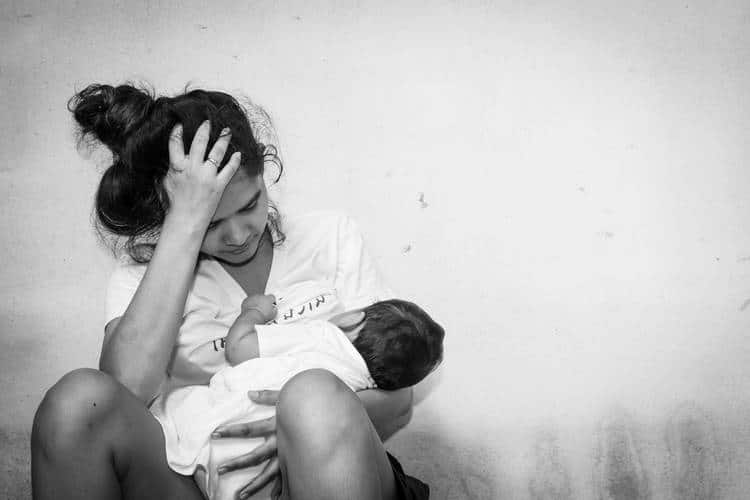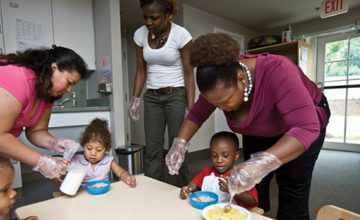ZERO TO THREE comments on new data showing 19.9 percent poverty rate among babies and toddlers.
Amanda Perez, Senior Advocacy Specialist, explains what the new poverty data means for babies.
WASHINGTON – One in five (2.3 million) infants and toddlers in the United States were living in poverty in 2017, according to data released today by the U.S. Census Bureau.
The 19.9 percent infant and toddler poverty rate was a slight increase from 19.6 percent in 2016. While the poverty rate declined for Americans overall, infants and toddlers – during the years of greatest brain development – remained the age group in the United States most likely to live in poverty.
Babies and toddlers of color fared even worse – 33.1 percent of young Black children and 27.3 percent of young Hispanic children were living in poverty compared to 11.8 percent of young White children.
In response to the new Census data, Myra Jones-Taylor, Chief Policy Officer at ZERO TO THREE, the leading nonprofit dedicated to ensuring babies and toddlers have a strong start in life, released the following statement:
“The stagnant infant and toddler poverty rate is discouraging, especially in stark contrast to continued economic growth over the past year. We cannot ensure a strong future for our country when one in five babies and toddlers live below the poverty line. Now that the recovery from the Great Recession has taken hold, the stubborn poverty rate among babies and toddlers is a wake-up call that we need to do more to make our youngest children a national priority.
“Our earliest years are the most important for brain development. Children age 3 and younger make an incredible one million neural connections every second, setting the foundation for all future learning. Babies and toddlers are the age group most likely to live in poverty, and that threatens our nation’s wellbeing and economic security today and in the future.
“Poverty gets under the skin. Children who start out in poverty are more likely to fall behind in their language development and experience learning disabilities or developmental delays, with gaps in development appearing before a child’s second birthday. And because this is such a formative time for children, every second a baby and toddler lives in poverty is another second his or her brain development and future success is threatened.”
“The good news is that we know what works to protect babies and toddlers from the negative effects of poverty. Strong, nurturing relationships with caring adults can shield babies and toddlers from the negative impacts and support their healthy brain development. The 2.3 million babies and toddlers living in poverty urgently need us to act!
“ZERO TO THREE calls on our nation’s leaders to invest in young children and their parents through proven programs like Early Head Start, which provides the comprehensive, wrap-around supports to meet the needs of poor infants and toddlers and their families. It currently serves just 7 percent of eligible infants and toddlers.”
Visit zerotothree.org/povertyto learn more.
About ZERO TO THREE
ZERO TO THREE works to ensure all babies and toddlers benefit from the family and community connections critical to their well-being and development. Since 1977, the organization has advanced the proven power of nurturing relationships by transforming the science of early childhood into helpful resources, practical tools and responsive policies for millions of parents, professionals and policymakers. For more information, and to learn how to become a ZERO TO THREE member, please visit zerotothree.org, facebook.com/zerotothree, or follow @zerotothree on Twitter.




